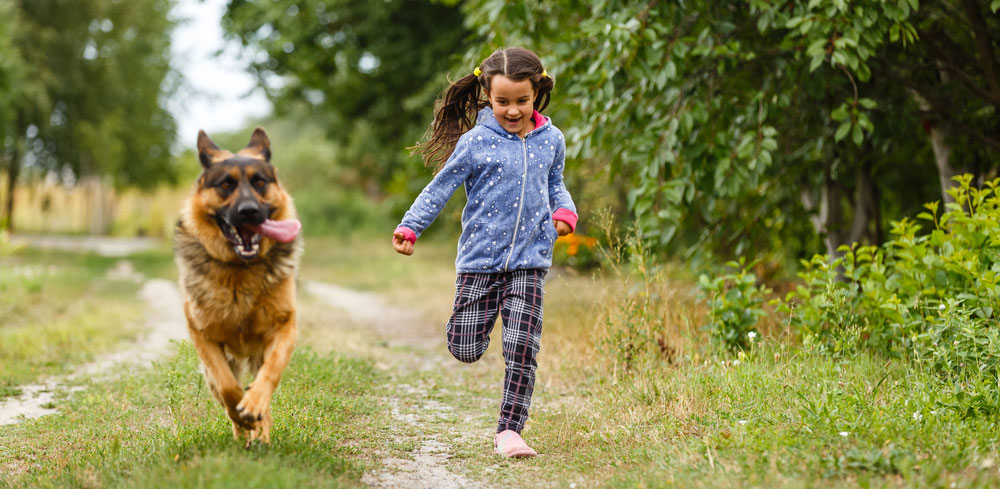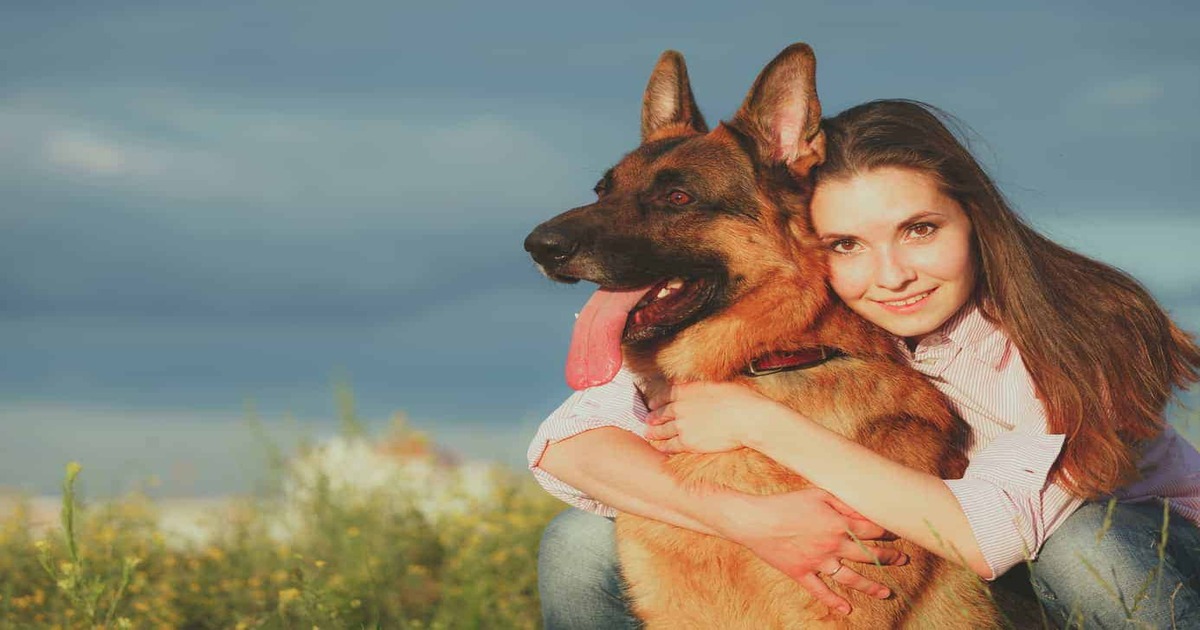German Shepherds are known for their loyalty and devotion to their owners. Many dog lovers wonder if German Shepherds have a tendency to bond with only one person.
In this article, we will explore the concept of bonding in dogs, specifically focusing on German Shepherds. We will discuss the factors that affect bonding, the benefits of a strong bond, and how to build and strengthen the bond with your German Shepherd.
So, let’s dive in and understand the fascinating world of German Shepherd bonding.
Table of Contents
What is Bonding in Dogs?
Before we delve into the specifics of German Shepherd bonding, let’s first understand what bonding means in the context of dogs. Bonding refers to the emotional connection and attachment that forms between a dog and its owner or primary caregiver.
It involves trust, loyalty, and a sense of security. When a dog bonds with its owner, it becomes deeply attached and exhibits behaviors that reflect this strong connection.
Do German Shepherds Bond with One Person?
German Shepherds are known for their loyalty and often form strong bonds with their owners. While they can develop close relationships with multiple family members, it is not uncommon for a German Shepherd to have a particular affinity for one person.
This strong bond is often a result of consistent care, training, and socialization provided by that individual. However, it’s important to note that each German Shepherd is unique, and bonding preferences can vary.
Factors Affecting Bonding in German Shepherds
Several factors can influence the bonding process in German Shepherds. Understanding these factors can help you develop a deeper connection with your furry companion. Some key factors include:
1. Time and Consistency
Bonding takes time and consistent interaction. Spending quality time with your German Shepherd and being involved in their daily routines can strengthen your bond.
2. Socialization
Proper socialization plays a crucial role in bonding. Exposing your German Shepherd to various environments, people, and animals from an early age helps them feel secure and builds trust.
3. Training
Positive reinforcement training techniques can enhance bonding. Training sessions provide an opportunity for communication, cooperation, and mutual understanding between you and your German Shepherd.
4. Exercise and Play
Regular exercise and playtime contribute to a healthy bond. Engaging in physical activities together promotes a sense of companionship and shared experiences.
5. Communication
Effective communication is essential for bonding. Understanding your German Shepherd’s body language, vocalizations, and needs enables you to respond appropriately and build trust.
6. Emotional Support
Providing emotional support, such as comfort during stressful situations or illness, helps strengthen the bond. German Shepherds thrive on emotional connection and appreciate your presence during challenging times.
Benefits of a Strong Bond
A strong bond with your German Shepherd brings numerous benefits for both you and your furry friend. Some of the benefits include:
1. Trust and Loyalty
A strong bond fosters trust and loyalty. Your German Shepherd will look to you as their protector and confidant, leading to a deeper sense of security and a stronger bond.
2. Enhanced Training Experience
When you have a strong bond, training becomes more effective and enjoyable. Your German Shepherd will be motivated to learn and please you, making the training process smoother.
3. Improved Behavior
A strong bond often leads to better behavior in German Shepherds. They are more likely to exhibit obedience, respect boundaries, and follow commands when they feel connected to their owner.
4. Emotional Well-being
Both you and your German Shepherd will experience improved emotional well-being. The bond provides comfort, companionship, and reduces feelings of loneliness or anxiety.

How to Build a Strong Bond with Your German Shepherd
Building a strong bond with your German Shepherd requires time, effort, and dedication. Here are some tips to help you strengthen your bond:
1. Spend Quality Time Together
Set aside dedicated time each day to engage in activities with your German Shepherd. This could include walks, playtime, training sessions, or simply relaxing together.
2. Use Positive Reinforcement
Reward desired behaviors with treats, praise, and affection. Positive reinforcement motivates your German Shepherd and reinforces the bond between you.
3. Be Patient and Understanding
Understanding that each dog has its own personality and pace of bonding is crucial. Patience and empathy will go a long way in building trust and deepening the connection.
4. Incorporate Mental Stimulation
Provide mental stimulation through puzzle toys, interactive games, and training exercises. Mental challenges help keep your German Shepherd engaged and strengthen the bond.
5. Maintain Consistency
Consistency in routines, training methods, and expectations creates a stable environment for your German Shepherd. Predictability builds trust and strengthens the bond.
6. Show Affection
Regularly express your love and affection to your German Shepherd. Simple gestures such as petting, cuddling, and gentle massages can strengthen the emotional connection.
Socialization and Bonding
Socialization plays a significant role in bonding with your German Shepherd. By exposing your dog to various environments, people, and animals, you help them develop confidence and trust. Socialization should begin at a young age and continue throughout their lives.
Gradual exposure to new experiences will help your German Shepherd feel comfortable and secure, strengthening the bond between you.
Training and Bonding
Training sessions provide an excellent opportunity to bond with your German Shepherd. Positive reinforcement techniques, such as using treats and praise, create a positive association with training and deepen the bond.
Consistent training builds trust, enhances communication, and strengthens the overall relationship between you and your furry companion.
Exercise and Bonding
Regular exercise is essential for the overall well-being of your German Shepherd and can significantly contribute to bonding. Engaging in physical activities together, such as walks, jogging, or playing fetch, allows you to spend quality time and strengthens the connection between you and your dog.
Exercise not only provides physical stimulation but also mental stimulation, keeping your German Shepherd happy and content.
Communication and Bonding
Clear and effective communication is vital for establishing a strong bond with your German Shepherd. Understanding their body language, vocalizations, and needs allows you to respond appropriately and build trust.
By paying attention to their cues and signals, you can better understand their emotions and create a deeper connection. Communicating through positive reinforcement and consistent training further enhances the bond and fosters mutual understanding.
Understanding Your German Shepherd’s Needs
To build a strong bond, it’s crucial to understand and fulfill your German Shepherd’s needs. They have specific requirements for exercise, mental stimulation, socialization, and companionship.
By providing for these needs, you create an environment that promotes a healthy bond. Regular veterinary care, a balanced diet, and a safe and stimulating living space are also essential elements for your German Shepherd’s overall well-being and bonding experience.
Common Misconceptions about Bonding with German Shepherds
There are several misconceptions surrounding the topic of bonding with German Shepherds. Let’s address some of these misconceptions to gain a better understanding:
1. German Shepherds Can Only Bond with One Person
While German Shepherds often form strong bonds with their owners, they are capable of bonding with multiple people. However, the intensity of the bond may vary depending on individual circumstances and experiences.
2. Bonding Happens Instantly
Bonding is a gradual process that requires time, patience, and consistent interaction. It is not an instant connection but rather a result of trust and mutual understanding that develops over time.
3. Once Bonded, the Bond Cannot Be Broken
While German Shepherds are known for their loyalty, bonds can be influenced by various factors. Major life changes, neglect, or mistreatment can impact the bond. However, with proper care and attention, the bond can often be repaired.
Frequently Asked Questions
1. Can German Shepherds bond with more than one person?
Ans: Yes, German Shepherds are capable of forming strong bonds with multiple people. While they may have a particular affinity for one person who provides consistent care and training, they can develop close relationships with other family members as well.
2. How long does it take to bond with a German Shepherd?
Ans: Bonding with a German Shepherd is a gradual process that varies from dog to dog. It requires time, patience, and consistent interaction. Some dogs may form a strong bond relatively quickly, while others may take more time to develop trust and attachment.
3. What role does socialization play in bonding with a German Shepherd?
Ans: Socialization plays a crucial role in bonding with a German Shepherd. Exposing them to various environments, people, and animals helps them feel secure and builds trust. Proper socialization from an early age promotes a stronger bond and contributes to their overall well-being.
4. Can training sessions help strengthen the bond with a German Shepherd?
Ans: Yes, training sessions provide an excellent opportunity to bond with your German Shepherd. Positive reinforcement training techniques, such as using treats and praise, create a positive association with training and deepen the bond. Consistent training enhances communication, builds trust, and strengthens the overall relationship.
5. What should I do if the bond with my German Shepherd seems weakened?
Ans: If you feel that the bond with your German Shepherd has weakened, it’s important to assess the potential factors contributing to it. Major life changes, neglect, or mistreatment can impact the bond.
In such cases, providing consistent care, positive interactions, and fulfilling their needs can help repair and strengthen the bond. Patience, empathy, and dedication are key in rebuilding the connection with your German Shepherd.
Conclusion
Building a strong bond with your German Shepherd is a rewarding and fulfilling experience. By understanding the factors that influence bonding, providing consistent care, positive interactions, and fulfilling their needs, you can create a deep and lasting connection.
Remember to be patient, empathetic, and dedicated in your efforts to strengthen the bond. The loyalty and love you receive in return will make the journey worthwhile.

I’m David, an expert contributor and writer, with two furry friends of my own, I know the challenges of raising and caring for dogs. From training to nutrition and health, my goal is to provide valuable insights and advice to help create strong bonds and happy, healthy lives. Find me in Twitter.




